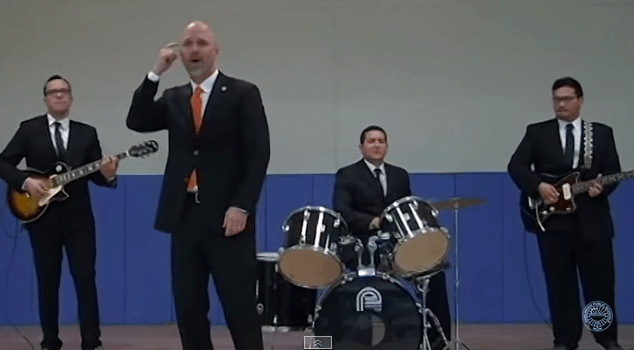
Bill Would Release Old STAAR Tests Annually To Help Teachers Prepare
When Texas debuted its much-maligned STAAR test last school year, some of the harshest criticisms came from teachers, who complained they’d been given little guidance about what sorts of questions the test would include. In fact, Texas keeps the tests under wraps for three years so it can reuse them.
A bill from state Rep. Mark Strama (D-Austin) would change that, to release STAAR questions and answer keys every year. Texas would pay the testmaker, Pearson, $2.1 million annually to develop new questions every year, according to the Texas Education Agency.
“In the big scheme of things that’s not a lot,” said Casey McCreary, assistant executive director of the Texas Association of School Administrators.
In a session full of proposals to cut back on testing costs, or cut them out entirely, Strama’s is an outlier—but it’s an idea he hopes would make the test we’ve got more useful.
“Given the amount of mistrust, the only way we’re going to overcome that is to let people read the questions,” Strama said. “Then we can have an intelligent discussion. … Clearly we’re taking a hard look at the whole testing regime.”
Strama said his bill is a return to the timeframe of the TAKS test. Teachers, he said, “can look at what their kids missed last year and target the instruction to focus on the skills they’re missing.” He said the change will be most beneficial to students who don’t pass the test on the first try. When they end up in remedial programs, their teachers would have a better idea where the kids are still struggling.
Strama has said the bill would need approval from the governor as an emergency item, so the Legislature could take it up in time for the next round of STAAR testing this spring.
Dineen Majcher, president of the board for Texans Advocating for Meaningful Student Assessment, agrees it’s a problem that teachers have to wait up to three years to see old tests. But she said Strama’s bill still doesn’t go far enough.
“While he’s going in the right direction, that still doesn’t give us diagnostic data,” Majcher said. “Diagnostic data shows in detail where the student made errors or did well and you can use that information to help that student improve.”
Unlike the STAAR test, Majcher said, her daughter brings home class tests that allow her to see what concepts she didn’t understand and better understand any mistake she originally made. Major changes to standardized testing must be implemented for students to better learn from the questions they’ve missed, Majcher said.
“Seeing the test itself is the best way to do that…in everyday school life that’s how students learn,” Majcher said. “I appreciate what Mark is trying to do, but if we’re going to do this, let’s do it right.”
Majcher pointed to the EXPLORE test, created by the nonprofit ACT, as an example of the tests her group prefers because it offers more diagnostic data than the STAAR test. She said Texas must do away with high-stakes testing that affects a student’s academic path.
“The high-stakes are predominantly what cause teaching to the test, because schools want to make sure students pass,” Majcher said. “We have testing in April and we really hope these issues get resolved before our kids have to take those tests.”


